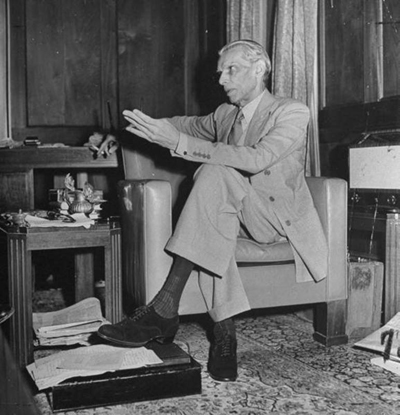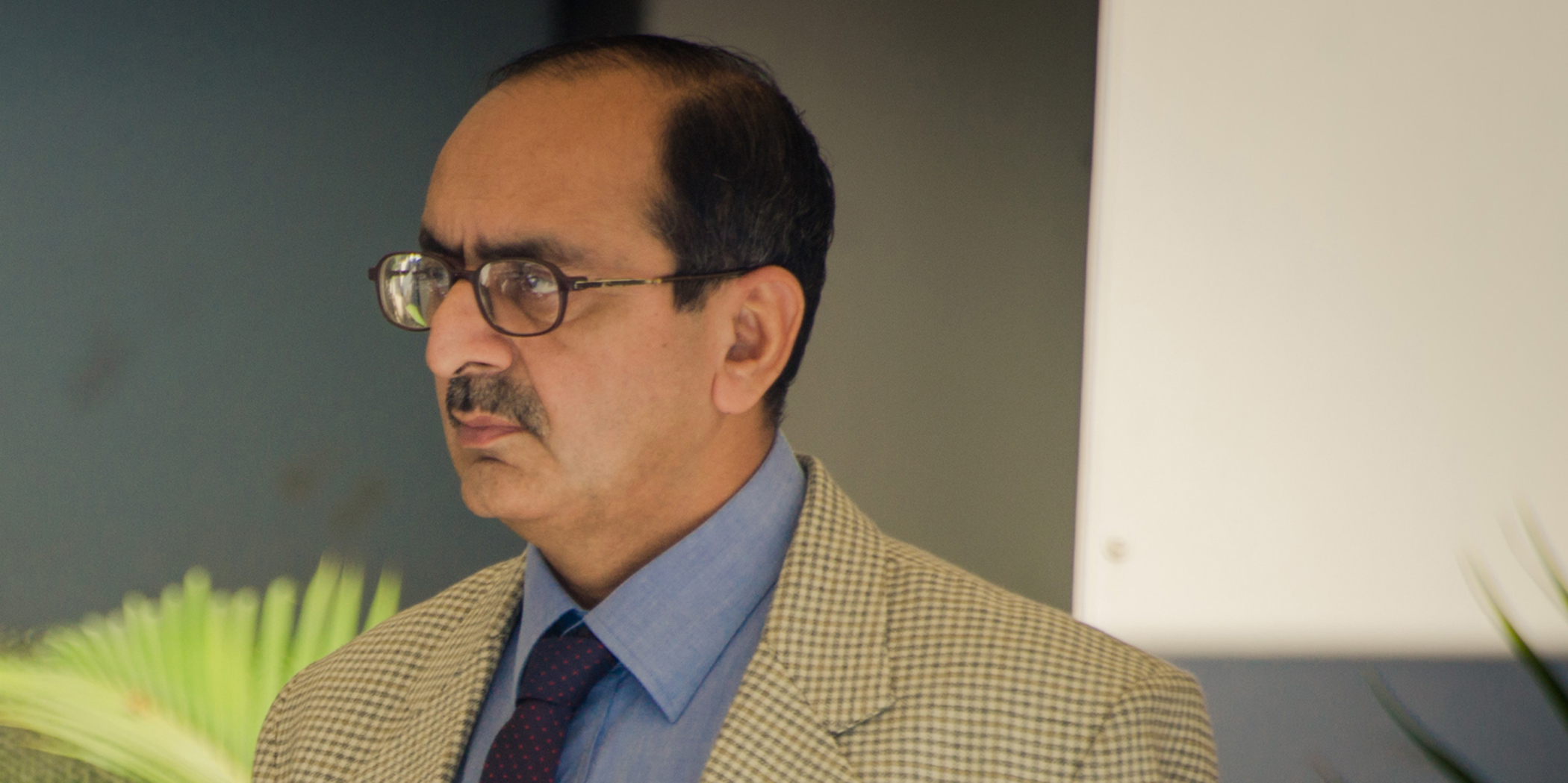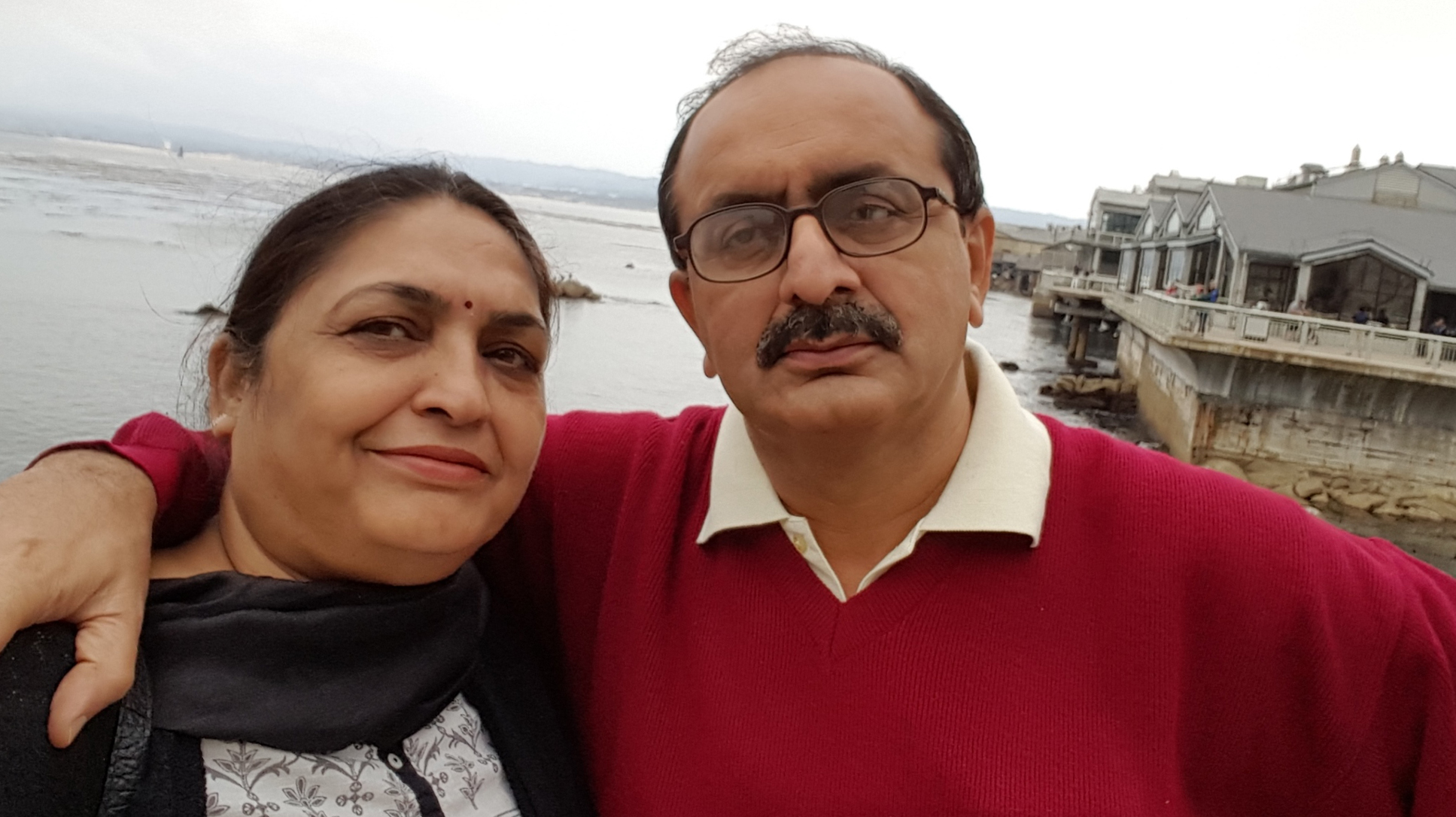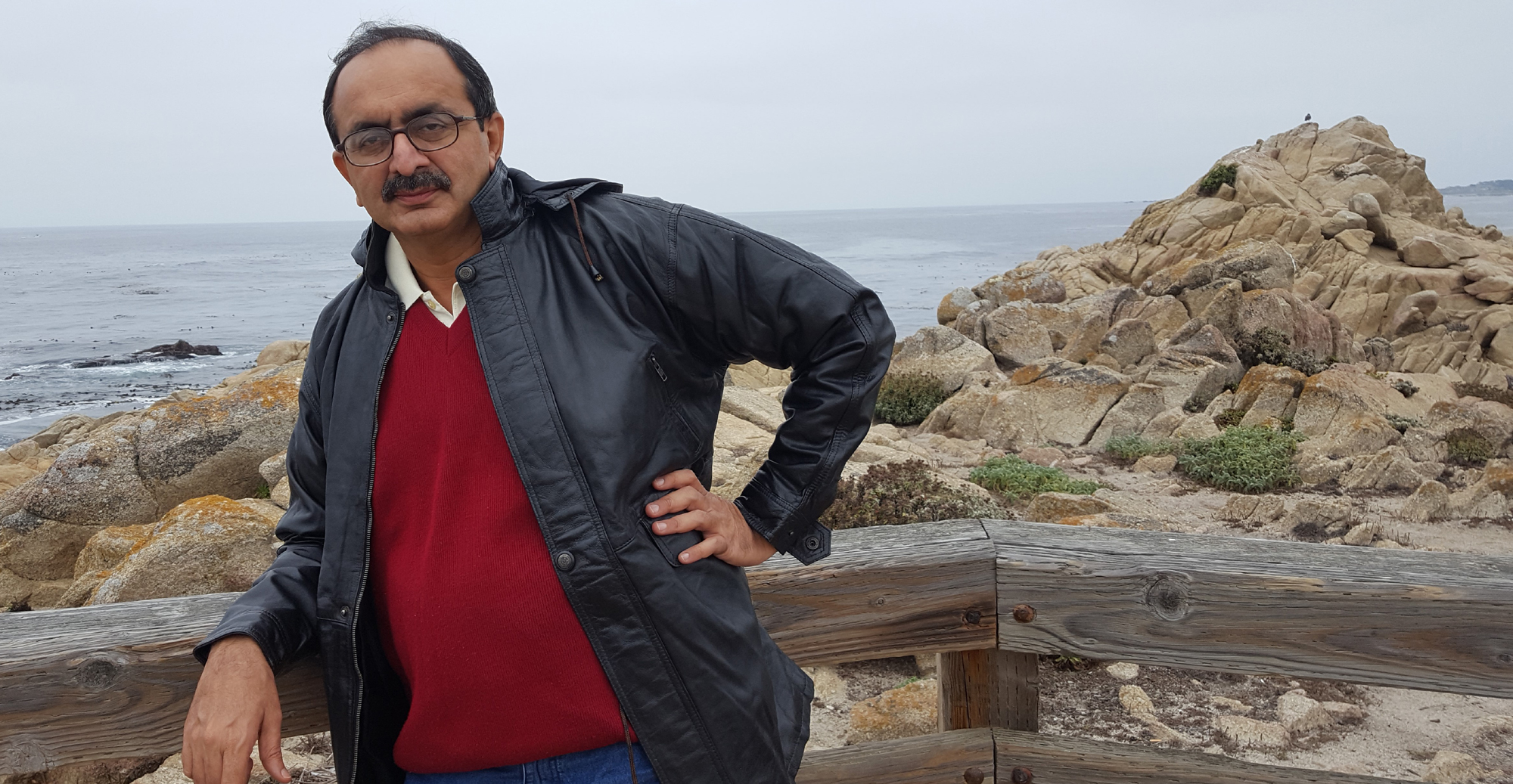With Love to the Land of My Forefathers!
Pakistan is located on the land which was the land of my forefathers for centuries. Often I am asked about the place to which my family originally belongs. And when I answer some respond with the comment, "Ah, so your family hails from Pakistan". I forgive this comment without any reaction. But it hurts. We do not hail from Pakistan. But, we do hail from Multan, Punjab. The difference is important.
My father's side of the family belonged (or rather, belongs) to Amirpur, a small village near Lodhran, off the road from Bahawalpur to Multan. My mother's side of the family hails from Bahawalpur. The region is part of Multan, Punjab. My parents, even today, speak Multani, a dialect of Punjabi.
Our families were forced to migrate at the time of partition. More than seven decades have passed since that bloody phase of Indian history.
As we look back, do we hate the land that was ours? Certainly not! Shall we like to destroy the land that fed our forefathers for centuries? No, certainly not! We loved the land and still love it. What are the feelings in our heart towards our brethren who shared joys and sorrows with our forefathers and who one day drove us out of our homes? Now, that is a complicated question.
No one from our families has dared to travel to Amirpur or Bahawalpur or Multan or even Lahore in the past seven decades. But we have on various occasions met people from Multan in different parts of the world. I distinctly recall meeting a group of Multani men in Germany some years ago. They were most friendly to me. When they learnt that I was also a Multani, they immediately without any hesitation invited me to have food with them. The love was mutual. In the short interaction that we had, we agreed that partition was a result of "siyasat" (politics) and we were one people united by history, culture and food. I was on a business trip. So I could not accept their invitation for lunch / dinner. But if I had time, we could have surely built a lifelong relationship.
This was not one isolated experience. Without exception, every time someone from our family has met a Multani in any part of the world there has been warmth on both sides. In any such interaction, politicians are seen as the villains who drew a dividing line on a land united by history, culture and emotions. Partition is seen as a ghastly turn of events, a nightmare which unfortunately was real. The attempt to extend hand across the horrors of partition and touch hearts with love and affection is probably more from the side of the people who are based in present-day-Pakistan than from our side.
Every interaction with Multanis from across the border has shown me a schism or contradiction that is an essential feature of the people of present Pakistan, a country founded on the principle of Islamic nationhood. On one hand is the regional and historical identity of the people of Punjab, Sindh and Baluchistan and on the other is the identity as an Islamic nation. The two identities are in constant conflict with each other. Islamic identity of Pakistan wants to eliminate and wipe off the history and culture of Punjab, Sindh, Khyber Pakhtunkhwa, and Baluchistan ("PSKB", in short) which is inextricably linked to the history and culture of India.
Did the people of PSKB choose to be Pakistan? No, they certainly did not. There was no referendum held to decide whether the region should be a part of Pakistan or not. Muslim League which raised the demand for Pakistan was mostly supported by Muslims of Uttar Pradesh and Bihar (states of present-day India). Muslim League had only nominal support in PSKB. British rulers and some politicians decided that PSKB should be the western part of a new country to be called Pakistan which would be for Muslims.
Islam was to be the defining identity of the new-born nation. For some strange reasons, it was decided that Urdu was the language of Islam and hence the language of the new country should be Urdu even though no part of the provinces of PSKB had any Urdu-speaking people. The new country soon had an elite-class whose interests were served best in the new-born country. This class got to work to crush and destroy the old identities of PSKB. They wanted to wipe out history, culture, language and emotions of a people and implant a new one based more on Islam and Arabs.
Interestingly, this process of replacement of culture and history was not in the mind of the founding father of Pakistan, Muhammad Ali Jinnah, a man who loved his evening peg and probably did not mind bacon for breakfast once in a while. Jinnah had a cafeteria approach to religion. He picked what he liked and used religion to further his political ambitions. Jinnah also, like his other countrymen, could not read or write Urdu, a language that he was forced to chose as the official language of Pakistan. Muhammad Ali Jinnah was grandson of Premjibhai Meghji Thakkar, a Hindu who converted to Islam and was keen to get back to Hinduism. Jinnah's family belonged to Lohana-Thakkars caste of the Saurashtra region of Gujarat. Jinnah wanted to serve as Prime Minister of Pakistan for a few years and later retire to Bombay (now called Mumbai).

Jinnah was a non-practicing Muslim who retained much of his family's Hindu traditions. Jinnah's concept of Pakistan was of a modern liberal country which was Muslim largely in the same way that he was one. Without being disrespectful to someone who is considered father of a nation, one can say that Jinnah was too naïve. Ideologies, when they pick up momentum, take a life of their own.
Ideology of two-nation-theory or Islamic nationhood that Jinnah espoused, soon after formation of Pakistan, threw away modern liberalism of Jinnah and turned to a more rabid form of Islam. Hatred for Hindus and all other religions was seen as the shortcut for asserting the identity of the new-born religion founded on Islam. Attempts were initiated to wipe away centuries of history of co-existence of Hindus and Muslims. All of a sudden, as a nation took birth the elite of the nation gave birth to a natural enemy in the neighborhood - India.
Pakistan's animosity with India is a corollary of the course that its foundation ideology (Islamic nationhood) took. The ideology is not confined to South Asia. It is global. Islamic nationhood ideology believes that Muslims across the globe are one nation and attempts must be made by Muslims to destroy all modern nation states and replace them with a Muslim Caliphate. Much of the terrorism that one sees across the world today stems from the said belief. It should come as no surprise that Pakistan, a nation founded on Islamic nationhood, is the nursery of global terrorism.
We know the direction that the two-nation-theory or Islamic nationhood and Pakistan have taken in the past seventy odd years. However, let us get back to the starting point - the naivety of a grandson of Premjibhai Meghji Thakkar. Mamadbhai Jhiniabhai Thakkar, or M J Thakkar (the original name of MA Jinnah, when he was in school) did not imagine the horrific form that the two-nation-theory would take in the next few decades. He did not imagine that the country that he struggled to get from the British would turn against the sect that his grandfather had converted to. He did not imagine that his family's grandchildren would never be able to visit their home-state. He did not imagine the country founded by him turning to Wahhabism and becoming a hub of global terrorism.
Do we fault Jinnah for his innocence or as some might say, foolishness? No, Jinnah was no different from most of Indians of that time. Hindus and Muslims, surely, had their differences and a complex relationship. But, by and large, there was a lot of social interaction and bonhomie between the two communities. At a social level, while the two communities intermingled in a restricted manner the two communities coexisted and had economic as well as neighborhood relationships. Animosity between the two communities was probably restricted to the political arena and did not extend to social or personal interactions. In such an atmosphere, neither Jinnah nor anyone of that time could have imagined that Jinnah, by nurturing two-nation-theory, was creating a Frankenstein - a monster that would turn against its creators.
Jinnah died just about one year after creation of Pakistan. He could not shape the identity of the new nation. Feudal lords, army and the clergy took upon themselves the job of creating the identity of Pakistan which was unlike any that Jinnah could have imagined in his wildest dreams. Most importantly, the people of Punjab, Sindh, Khyber Pakhtunkhwa, and Baluchistan ("PSKB", in short) did not choose this identity. It will not be an exaggeration to say that people of PSKB have felt alienated with the new identity that their country had adopted.
Jinnah was the first victim of the Frankenstein called Islamic nationhood. Sorry, he was not the first. We, the Hindus, who were forced to flee from our homes, were the first victims. Jinnah was next in line. Soon after, all Ismailis and Shias (the sects to which Jinnah's father and grandfather had moved) were targeted and faced violence (Even today, they face severe persecution in Pakistan). While the Sunni majority was neither persecuted nor forced to flee, they too became victims of the Frankenstein.
Muslims (whether Sunni or Shia) of PSKB were not radicalized before partition of India. Most Muslims of PSKB were followers of Sufi Islam which is largely tolerant of Hinduism. There have been many Hindu Sufi saints (for example, Guru Nanak) which were held in great regard by Muslims of PSKB. This tolerant co-existence-oriented attitude of Muslims of PSKB appeared to be a threat to the foundation of Pakistan. The new elite that were in-charge of Pakistan could not live with this threat and took upon themselves the job of bringing about a transformation of the minds of the people. For this objective, Islamic clergy (using the term loosely to mean maulvis, imams etc.; I am aware that Islam does not have a formal clergy) came to the aid of feudal lords and army. The clergy was happy with its new role and the power that came with it. They have been instrumental in steering PSKB away from Sufism to Wahhabism.
Islamic clergy worked with the ruling establishment to rewrite the school textbooks of Pakistan introducing the tenets of Wahhabism and also in sowing hatred for all non-Muslims (primarily Hindus, but also Jews and Christians). Pakistan with guidance from Islamic clergy turned people of PSKB away from their own history, culture and roots. Pakistani establishment was teaching the people of PSKB to hate not just the neighboring country India but also the India which lived in their hearts and minds. This has laid the foundation of the conflict that underlies the psyche of people of PSKB today.
PSKB people have been colonized in their own land by their own people with an ideology that is alien to them and which is seeking to systematically and brutally destroy each and every fiber of their being. On one hand are their values, culture, history, rituals, ceremonies which make them a part of their eastern neighbor by heart and soul. On the other hand is the attempt by the ruling establishment to pull them towards Saudi Arabia. The pulls are in opposite direction not merely geographically but also spiritually and emotionally.
I mentioned above of the warmth that our family members have felt whenever anyone of us met a Multani. It is as if they wish to hold our hand and touch the India that is being taken away from them. The struggle that is going on in their hearts is too obvious for anyone to miss. Incidentally, two-nation-theory is hardly talked about in Indian media these days. But it remains a much-discussed topic in Pakistan even today.
It is time to come back to the original question about feelings in our heart towards our brethren of Multan or for that matter PSKB. I can speak for myself and I can also probably speak for everyone who hails from that region. We have deep love for people and land of PSKB. We shall never want to harm any of them. We want them to grow and prosper. Some Indians may talk of throwing a nuclear bomb there. But none of us with any connection to that region can even mention such a terrible action. The thought stirs up strange painful emotions in our hearts.
Having said that let me add that while we love PSKB we hate Pakistan from every drop of our blood and with every beat of our hearts. The challenge before us and also before India and the world is to destroy Pakistan without hurting either the land or the people of PSKB. When one talks about destroying Pakistan, one clearly means destroying the ideology of two-nation-theory and Islamic nationhood, which is a spectre that threatens the whole world. No country or people are safe from this malady. PSKB was the first victim of this horrendous ideology. It must be understood that present-day global terrorism is merely an outgrowth of the malaise. There is no point trying to eliminate the outgrowth when the root remains firmly entrenched in the first victim.
It is necessary to clarify at this point that the malaise is two-nation-theory or political Islam and is not the religion of Islam. Muslim countries need to be as afraid of the malaise as Europe and the USA need to be. Political Islam does not recognize national boundaries or regional cultures or identities. It demands total allegiance from everyone and anyone who dithers or refuses must be killed irrespective of the faith to which he / she claims to belong to. It is truly barbaric in thought, approach and action. Murder, rape and genocide are its favorite weapons that it uses against equally against Muslims and non-Muslims. We, the people of PSKB (both Muslims and non-Muslims), have suffered at its hands for close to three fourth of a century. The world has got a glimpse of its horrors only for the past couple of decades. And what the world has seen is, according to votaries of the ideology, merely a trailer – much worse is to follow.
Need of the hour is to rescue the first victim, to liberate the land and people of PSKB. The world needs to rise up to support the people of PKSB to help them find and live with their own regional identities, culture and history. Before the world moves to eliminate the ideology of two-nation-theory or Islamic nationhood or political Islam globally, the world must first fight the battle at ground zero. It is imperative to fight the idea of Pakistan and to overthrow it from the provinces that were given to it on a platter foolishly by the British in 1947. It is time for civilization to claw back the lands (and also the people) that were lost to barbarism.
No, this is not a call for the world to gift these lands back to India. It is against the ethos of India to expand boundaries or capture territories by force. The call is to liberate the people of PSKB from the tyranny of the ideology that forms the foundation of Pakistan. PSKB may be split into three or more independent countries run on secular liberal principles of tolerance and co-existence. Let each of the new independent countries draw strength and nourishment from her own history, culture and traditions. Let each of them carve out an independent identity. Let the school textbooks of these countries be sanitized of hateful content. Let the schools there teach the rich history of the region for the past five thousand years. Let the countries be defanged to curb the warmongering elites that prospered under the name of Pakistan.
The call might sound preposterous to some. In 2011, I had visited office of a major think tank in Washington D.C. to propound the proposal. The American Pakistan-expert, who had friends in Pakistani establishment and had spent many years there, was courteous enough to not throw me physically out of the window. She was furious and would have loved to me kick me where it hurts most. She took me to be an Indian spy agency operative who had come to check if the idea will find some support. She did not realize and the USA probably still does not realize that destruction of Pakistan while preserving land, people and culture of PSKB is in the best interests of the USA and the world at large.
For the doubting Thomases let me give two examples of countries that were saved from harmful vitriolic ideologies that had occupied the countries. First example is of liberation of Bangladesh from Pakistan in 1971. The liberation from Pakistan has not harmed Islam in Bangladesh. People of Bangladesh have prospered more under Bangladesh than they did as East Pakistan. GDP growth rate of Bangladesh today is higher than that of Pakistan as well as India. Bangladesh does not deny her ancient history, culture and icons. Bangladesh does not need to look at Saudi Arabia to define her identity. No denying that there are fringe elements in Bangladesh who keep raising the flag of Islamic nationhood. But such elements are put down with a firm hand by the Bangladesh government. Bangladesh does not face any threat to world peace.
Second example is of Japan and Germany. The two countries were afflicted by militarist violent ideologies during World War II. After the end of the War, the Allies under the leadership of the USA helped on one hand rebuild the economies of the two countries and on the other hand purged the countries of the violent ideologies. Today both countries lead the world in terms of technological innovation and economic growth.
It is high time that all those who hail from PSKB (whether Muslim or non-Muslim; living in any part of the world including India, Europe and the USA) raise their voices for liberation of the lands and people of PSKB from the tyrannical and destructive reign of Pakistan. We, the ones who love PSKB, must refuse to let an oppressive ideology destroy our history, culture, roots and icons.
The ideology of Islamic nationhood or two-nation-theory has poisoned the minds of millions of people with hatred towards their own past and towards their brethren and neighbors. It is high time to stop further spread of hatred. We, the people rooted in PSKB, must give to the people living on the land of our forefathers love that they need to overcome decades of hatred sown in their minds. While we hate Pakistan and all that it stands for, let us not hate the victims of Pakistan because they are no different. They have suffered the same way as we have and they are surely the same blood that we are. They need help today to start a new life. Let us gather the world to understand their need for love, compassion and support.
The world must help for its own good and also because the world is as guilty of naivety and foolishness in not anticipating the dangers of Islamic Nationhood or two-nation-theory as Jinnah was. Britain actively promoted the birth of Pakistan and the USA supported the Frankenstein for more than seven decades even as it nurtured hatred and violence. It is high time that Britain, the USA and the rest of the world realize their folly and act to put an end to the Frankenstein.
Pakistan today is an economic disaster even though it is blessed with the best of the lands of Indian sub-continent. It is an economic basket-case because it is frittering away its resources for its expansionist militarist dreams and also because it has not been investing in growth and development. The new countries of PSKB will not follow the disastrous course pursued by Pakistan and will hence move fast on the path of economic development much like Bangladesh has done.
As and when the new countries are formed in PSKB, they will rewrite their textbooks to emphasize their ancient history, culture and ethos which are probably the oldest in the world with records of more than five thousand years. There will be no attempt to wipe out identities rooted in hearts and souls of the people. This will be truly liberation of the people of PSKB.
Yes, it sounds a distant dream. I hope that I live long enough to see this dream fulfilled. I do hope that a time comes when I am not accused of hailing from Pakistan. I look forward to a day when I shall proudly say that I belong to Multan a region with a rich history and culture. Of course, it is not me alone who has this dream. There are millions across the world whose forefathers called either Punjab or Sindh or Khyber Pakhtunkhwa or Baluchistan their home. Let us all be sure that our love will one day win over the hatred sown by decades of Islamic nationhood. Let there be no doubt that love always wins over hatred.


